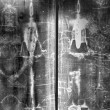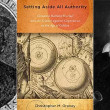Trial by Fire: Modernity’s Response to Miracles
by Joe Heschmeyer
Filed under Christianity and Science

Perhaps no single image captures the popular conception of the “Dark Ages” than the idea of trials by ordeal. These infamous trials are the reason we refer to a difficult situation as an “ordeal,” or perhaps a “trial by fire.” One of the most famous depictions of a trial by ordeal is in Monty Python and the Holy Grail. A woman is accused of witchcraft, and rather than gathering evidence or taking any but the most cursory of testimony, an elaborate test is designed... Read More
The Myth of the War Between Science and Religion
by Bishop Robert Barron
Filed under Christianity and Science

For the past several years, I’ve been posting short commentaries on YouTube, probably the most popular website in the world. I’ve covered everything from movies and music to books and cultural trends, but I’ve given special attention to the New Atheism. Among other videos, I’ve posted three answers to Christopher Hitchens’ book God is Not Great, a brief presentation of some classical arguments for God’s existence, and a response to Bill Maher’s movie Religulous. As you... Read More
Bill Nye the Unscientific Abortion Guy
by Trent Horn
Filed under Morality, Science
This past weekend former-educational-TV-star-turned-science-advocate Bill Nye posted a video about abortion on Big Think. Nye attempts to use science to resolve the debate about abortion and arrives at the following conclusion: “When it comes to women’s rights with respect to their reproduction, I think you should leave it to women.” The video is a perfect example of Maslow’s Hammer, or the saying, “If all you have is a hammer, everything looks like a nail.” In this case, the... Read More
The Salvation of Dog-men and Orangutans
by Matthew Allen Newland
Filed under Christianity and Science

I recently read, with fascination, Michael F. Flynn's article at Strange Notions, entitled "St. Christopher, ET, and the Middle Ages". There, Flynn discusses (among other things) the possibility of extraterrestrial life, and the question of what it means to be "human" (is it a matter of evolutionary descent or something else?). He makes a very interesting case by referring to written Medieval encounters with a race of dog-headed people, which include even the strange story of St. Christopher,... Read More
St. Christopher, ET, and the Middle Ages
by Michael F. Flynn
Filed under Christianity and Science

It has long been held that the medievals would have been terrified of aliens, regarded them as "demons," and otherwise persecuted them in their religious ignorance and fanaticism, while we wise moderns would recognize them as intelligent and equivalent to humans, deserving of the same consideration as humans. The latter is a self-flattering mythos, but likely no more true than the former. For illumination, we might turn to the well-known science-fiction novel, Eifelheim, but this too... Read More
Is the Shroud of Turin a Genuine Miracle?
by Fr. Dwight Longenecker
Filed under Christianity and Science

In June I had the joy to spend a week in Italy. One reason for my pilgrimage was to venerate the Shroud of Turin. I had been intrigued by the supposed burial cloth of Christ since I was in college, and as I was in England leading a pilgrimage with Joseph Pearce, I did not want to miss the chance of traveling to Turin to see the shroud. I was not disappointed. After taking the high-speed train from Rome, a decent restaurant and an overnight stay, we walked the few blocks from our hotel... Read More
Can Something Actually Cause Itself to Exist?
by Dr. Edward Feser
Filed under Cosmology

"There is no case known (neither is it, indeed, possible) in which a thing is found to be the efficient cause of itself; for so it would be prior to itself, which is impossible." - Summa Theologiae I.2.3 "If, then, something were its own cause of being, it would be understood to be before it had being – which is impossible…" - Summa Contra Gentiles I.22.6 Was Aquinas mistaken? Could something be its own cause? Stephen Hawking and Leonard Mlodinow seem to think so. In... Read More
Galileo was Right—But So Were His Critics
by Carl Olson
Filed under Christianity and Science, Galileo, Interviews

Ever since the seventeenth century, the celebrated “Galileo affair” has been one of the featured items on the list of dark moments in the history of Catholicism. That the Church mistreated the Italian astronomer—or at least misjudged his claims concerning the structure of the solar system—seems clear. Pope John Paul II, for example, apologized for the Church’s condemnation of Galileo in 1992. No one now disputes the fact that the earth revolves around the sun rather than the... Read More
The Appropriate Reaction to a Physical Theory of Life
by Dr. Stacy Trasancos
Filed under Science

MIT physicist, Professor Jeremy England, has gotten quite a lot of media attention about his ideas in a 2013 paper in The Journal of Chemical Physics, “Statistical physics of self-replication.” Quanta Magazine published an essay by Natalie Wolchover coining the work as “The New Physical Theory of Life,” which was republished by Scientific American and Business Insider. England was quoted: “I am certainly not saying that Darwinian ideas are wrong. On the contrary, I am just... Read More
Science and Miracles
by Dominicans of the Province of St. Joseph
Filed under Science

On June 20th, 2013, Giovanni Giudici, the Bishop of Pavia, pronounced the cure of Danila Castelli to be miraculous, 24 years after her pilgrimage to Lourdes. Her cure, and the 68 other cures proclaimed miraculous, began as simply one more of the more than 7,000 cures that have been reported to the Medical Bureau of the Sanctuary at Lourdes. While all of the cases are marvelous in their own way, only this small fraction survived the many stages of extensive investigation, both medical and... Read More






